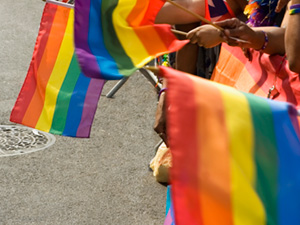Language: English
Climate: The US boasts a wide variety of climate types due to its size and range of geographic features.
Time Zone: Six times zones — Alaska, Hawaii plus four on mainland — PST, MST, CST, EST
International phone code: 1
Currency: US Dollars
Capital: Washington, DC
Transportation: Most travellers find themselves entering the US at one of its major entry points, such as New York, Chicago, Miami and Los Angeles, but many mid-size cities have international airports too. If you’re arriving by car, the US-Canada and US-Mexico borders are two of the most frequently crossed borders in the world, with millions of crossings daily. Greyhound buses offer inexpensive cross-border service from both Canada and Mexico throughout their network. Amtrak offers international train service from Vancouver, Toronto and Montreal into the US.
The size of the US and the distance separating its major cities make air the principal mode of travel for short-term travellers. Major carriers compete for business on major routes, and travellers willing to book two or more weeks in advance can get bargains. However, many smaller destinations are served by only one or two regional carriers, and prices there can be expensive. Domestic passenger trains can be surprisingly scarce and relatively expensive.
Renting or bringing your own car is usually a very good idea. This applies even to very large cities like Los Angeles, Atlanta and Miami, where public transport is limited and having a car is the most practical way of getting around. (The exceptions are New York City, Chicago, Boston, San Francisco and Washington, DC, where having your own car is not only unnecessary, but discouraged.) In most medium-sized American cities, everything is very spread out and public transportation thin. Intercity bus travel is widespread, and while not available everywhere, there are at least three daily routes in every state.
Gay United Kingdom
Lesbian, gay, bisexual and transgender rights in the US have evolved over time, yet still vary, sometimes drastically, on a state-by-state basis. Currently nine states — Connecticut, Iowa, Maine, Maryland, Massachusetts, New Hampshire, New York, Vermont and Washington (as well as the capital district of Washington, DC) offer same-sex marriages. Rhode Island will recognize gay marriages performed out-of-state, but won’t offer them locally. California briefly legalized gay marriage then rescinded it, after a citizens’ ballot initiative (Proposition 8) rolled it back in 2008. Many states explicitly banned gay marriage.
Recent studies — some scientific, some subjective — have revealed a continuing migration of gay Americans into mainstream, middle-American life. The queer scene is no longer found in just the obvious gay Meccas like San Francisco and New York City. While still on the list of Gayest Cities in America, they're being joined by unlikely candidates such as Columbus, Austin and Iowa City.




S(jods2n55htstvvzkdc5sov3p))/content/user/images/Dest/22/3796-140-115.jpg)
S(jods2n55htstvvzkdc5sov3p))/content/user/images/Dest/19/4363-140-115.jpg)
S(jods2n55htstvvzkdc5sov3p))/content/user/images/Dest/161/21932-140-115.png)
S(jods2n55htstvvzkdc5sov3p))/content/user/images/Dest/5/29895-140-115.jpg)
S(jods2n55htstvvzkdc5sov3p))/content/user/images/Dest/8/3793-140-115.png) Akron
AkronS(jods2n55htstvvzkdc5sov3p))/content/user/images/Dest/96/12262-140-115.png) Albany
AlbanyS(jods2n55htstvvzkdc5sov3p))/content/user/images/Dest/97/12615-140-115.png) Albuquerque
AlbuquerqueS(jods2n55htstvvzkdc5sov3p))/content/user/images/Dest/283/12288-140-115.jpg) Amarillo
AmarilloS(jods2n55htstvvzkdc5sov3p))/content/user/images/Dest/284/12023-140-115.jpg) Anchorage
AnchorageS(jods2n55htstvvzkdc5sov3p))/content/user/images/Dest/98/17756-140-115.png) Ann Arbor
Ann ArborS(jods2n55htstvvzkdc5sov3p))/content/user/images/Dest/99/12369-140-115.png) Asbury Park
Asbury ParkS(jods2n55htstvvzkdc5sov3p))/content/user/images/Dest/100/19290-140-115.png) Asheville
AshevilleS(jods2n55htstvvzkdc5sov3p))/content/user/images/Dest/7/3508-140-115.png) Atlanta
AtlantaS(jods2n55htstvvzkdc5sov3p))/content/user/images/Dest/102/18237-140-115.png) Atlantic City
Atlantic CityS(jods2n55htstvvzkdc5sov3p))/content/user/images/Dest/286/20098-140-115.png) Augusta
AugustaS(jods2n55htstvvzkdc5sov3p))/content/user/images/Dest/26/10014-140-115.jpg) Austin
AustinS(jods2n55htstvvzkdc5sov3p))/content/user/images/Dest/104/10182-140-115.png) Baltimore
BaltimoreS(jods2n55htstvvzkdc5sov3p))/content/user/images/Dest/287/12926-140-115.png) Baton Rouge
Baton RougeS(jods2n55htstvvzkdc5sov3p))/content/user/images/Dest/110/19999-140-115.png) Bloomington
BloomingtonS(jods2n55htstvvzkdc5sov3p))/content/user/images/Dest/112/20079-140-115.png) Boise
BoiseS(jods2n55htstvvzkdc5sov3p))/content/user/images/Dest/6/2836-140-115.png) Boston
BostonS(jods2n55htstvvzkdc5sov3p))/content/user/images/Dest/120/13000-140-115.png) Buffalo
BuffaloS(jods2n55htstvvzkdc5sov3p))/content/user/images/Dest/42/12271-140-115.png) Charlotte
CharlotteS(jods2n55htstvvzkdc5sov3p))/content/user/images/Dest/295/20780-140-115.jpg) Chattanooga
ChattanoogaS(jods2n55htstvvzkdc5sov3p))/content/user/images/Dest/1/29887-140-115.jpg) Chicago
ChicagoS(jods2n55htstvvzkdc5sov3p))/content/user/images/Dest/35/3994-140-115.jpg) Cincinnati
CincinnatiS(jods2n55htstvvzkdc5sov3p))/content/user/images/Dest/20/3805-140-115.png) Cleveland
ClevelandS(jods2n55htstvvzkdc5sov3p))/content/user/images/Dest/363/15100-140-115.png) Columbia MO
Columbia MOS(jods2n55htstvvzkdc5sov3p))/content/user/images/Dest/257/29943-140-115.jpg) Columbus
ColumbusS(jods2n55htstvvzkdc5sov3p))/content/user/images/Dest/24/29927-140-115.jpg) Dallas
DallasS(jods2n55htstvvzkdc5sov3p))/content/user/images/Dest/29/10593-140-115.jpg) Denver
DenverS(jods2n55htstvvzkdc5sov3p))/content/user/images/Dest/268/11970-140-115.jpg) Des Moines
Des MoinesS(jods2n55htstvvzkdc5sov3p))/content/user/images/Dest/61/21544-140-115.png) Detroit
DetroitS(jods2n55htstvvzkdc5sov3p))/content/user/images/Dest/30/12323-140-115.png) El Paso
El PasoS(jods2n55htstvvzkdc5sov3p))/content/user/images/Dest/18/9428-140-115.jpg) Fire Island
Fire IslandS(jods2n55htstvvzkdc5sov3p))/content/user/images/Dest/250/29947-140-115.jpg) Fort Lauderdale
Fort LauderdaleS(jods2n55htstvvzkdc5sov3p))/content/user/images/Dest/263/12913-140-115.png) Fort Myers
Fort MyersS(jods2n55htstvvzkdc5sov3p))/content/user/images/Dest/28/10218-140-115.png) Fort Worth
Fort WorthS(jods2n55htstvvzkdc5sov3p))/content/user/images/Dest/43/12824-140-115.png) Galveston
GalvestonS(jods2n55htstvvzkdc5sov3p))/content/user/images/Dest/153/16158-140-115.png) Grand Rapids
Grand RapidsS(jods2n55htstvvzkdc5sov3p))/content/user/images/Dest/159/14284-140-115.png) Hartford
HartfordS(jods2n55htstvvzkdc5sov3p))/content/user/images/Dest/271/29963-140-115.jpg) Honolulu
HonoluluS(jods2n55htstvvzkdc5sov3p))/content/user/images/Dest/25/9680-140-115.jpg) Houston
HoustonS(jods2n55htstvvzkdc5sov3p))/content/user/images/Dest/17/3561-140-115.png) Indianapolis
IndianapolisS(jods2n55htstvvzkdc5sov3p))/content/user/images/Dest/57/12034-140-115.jpg) Iowa
IowaS(jods2n55htstvvzkdc5sov3p))/content/user/images/Dest/264/10172-140-115.jpg) Kansas City
Kansas CityS(jods2n55htstvvzkdc5sov3p))/content/user/images/Dest/259/29971-140-115.jpg) Key West
Key WestS(jods2n55htstvvzkdc5sov3p))/content/user/images/Dest/251/29975-140-115.jpg) Las Vegas
Las VegasS(jods2n55htstvvzkdc5sov3p))/content/user/images/Dest/357/8243-140-115.jpg) Long Beach
Long BeachS(jods2n55htstvvzkdc5sov3p))/content/user/images/Dest/248/29911-140-115.jpg) Los Angeles
Los AngelesS(jods2n55htstvvzkdc5sov3p))/content/user/images/Dest/45/12397-140-115.png) Louisville
LouisvilleS(jods2n55htstvvzkdc5sov3p))/content/user/images/Dest/72/11336-140-115.jpg) Madison
MadisonS(jods2n55htstvvzkdc5sov3p))/content/user/images/Dest/181/17971-140-115.jpg) Maui
MauiS(jods2n55htstvvzkdc5sov3p))/content/user/images/Dest/75/12565-140-115.jpg) Memphis
MemphisS(jods2n55htstvvzkdc5sov3p))/content/user/images/Dest/23/29903-140-115.jpg) Miami
MiamiS(jods2n55htstvvzkdc5sov3p))/content/user/images/Dest/36/11462-140-115.jpg) Milwaukee
MilwaukeeS(jods2n55htstvvzkdc5sov3p))/content/user/images/Dest/265/12923-140-115.png) Minneapolis
MinneapolisS(jods2n55htstvvzkdc5sov3p))/content/user/images/Dest/186/20799-140-115.jpg) Myrtle Beach
Myrtle BeachS(jods2n55htstvvzkdc5sov3p))/content/user/images/Dest/358/13347-140-115.png) Nashville
NashvilleS(jods2n55htstvvzkdc5sov3p))/content/user/images/Dest/81/9903-140-115.png) New Hope
New HopeS(jods2n55htstvvzkdc5sov3p))/content/user/images/Dest/252/29995-140-115.jpg) New Orleans
New OrleansS(jods2n55htstvvzkdc5sov3p))/content/user/images/Dest/247/29899-140-115.jpg) New York
New YorkS(jods2n55htstvvzkdc5sov3p))/content/user/images/Dest/192/9881-140-115.png) Ogunquit
OgunquitS(jods2n55htstvvzkdc5sov3p))/content/user/images/Dest/260/10684-140-115.jpg) Oklahoma City
Oklahoma CityS(jods2n55htstvvzkdc5sov3p))/content/user/images/Dest/82/12108-140-115.jpg) Omaha
OmahaS(jods2n55htstvvzkdc5sov3p))/content/user/images/Dest/15/3719-140-115.png) Orlando
OrlandoS(jods2n55htstvvzkdc5sov3p))/content/user/images/Dest/253/29999-140-115.jpg) Palm Springs
Palm SpringsS(jods2n55htstvvzkdc5sov3p))/content/user/images/Dest/12/12604-140-115.png) Philadelphia
PhiladelphiaS(jods2n55htstvvzkdc5sov3p))/content/user/images/Dest/34/30003-140-115.jpg) Phoenix
PhoenixS(jods2n55htstvvzkdc5sov3p))/content/user/images/Dest/33/10162-140-115.png) Pittsburgh
PittsburghS(jods2n55htstvvzkdc5sov3p))/content/user/images/Dest/32/4611-140-115.jpg) Portland
PortlandS(jods2n55htstvvzkdc5sov3p))/content/user/images/Dest/37/9928-140-115.png) Providence
ProvidenceS(jods2n55htstvvzkdc5sov3p))/content/user/images/Dest/11/3515-140-115.png) Provincetown
ProvincetownS(jods2n55htstvvzkdc5sov3p))/content/user/images/Dest/266/5370-140-115.png) Rehoboth
RehobothS(jods2n55htstvvzkdc5sov3p))/content/user/images/Dest/202/11937-140-115.jpg) Reno
RenoS(jods2n55htstvvzkdc5sov3p))/content/user/images/Dest/328/31941-140-115.jpg) Rochester
RochesterS(jods2n55htstvvzkdc5sov3p))/content/user/images/Dest/87/10192-140-115.png) Russian River
Russian RiverS(jods2n55htstvvzkdc5sov3p))/content/user/images/Dest/206/13760-140-115.png) Sacramento
SacramentoS(jods2n55htstvvzkdc5sov3p))/content/user/images/Dest/88/12394-140-115.png) Salt Lake City
Salt Lake CityS(jods2n55htstvvzkdc5sov3p))/content/user/images/Dest/27/10100-140-115.jpg) San Antonio
San AntonioS(jods2n55htstvvzkdc5sov3p))/content/user/images/Dest/258/3428-140-115.png) San Diego
San DiegoS(jods2n55htstvvzkdc5sov3p))/content/user/images/Dest/249/30007-140-115.jpg) San Francisco
San FranciscoS(jods2n55htstvvzkdc5sov3p))/content/user/images/Dest/383/27778-140-115.png) San Jose, CA
San Jose, CAS(jods2n55htstvvzkdc5sov3p))/content/user/images/Dest/210/20084-140-115.png) Santa Fe
Santa FeS(jods2n55htstvvzkdc5sov3p))/content/user/images/Dest/4/30011-140-115.jpg) Seattle
SeattleS(jods2n55htstvvzkdc5sov3p))/content/user/images/Dest/276/13146-140-115.png) St Croix
St CroixS(jods2n55htstvvzkdc5sov3p))/content/user/images/Dest/277/4560-140-115.png) St Louis
St LouisS(jods2n55htstvvzkdc5sov3p))/content/user/images/Dest/255/2662-140-115.png) St Petersburg
St PetersburgS(jods2n55htstvvzkdc5sov3p))/content/user/images/Dest/254/2688-140-115.png) Tampa
TampaS(jods2n55htstvvzkdc5sov3p))/content/user/images/Dest/229/21623-140-115.png) Toledo
ToledoS(jods2n55htstvvzkdc5sov3p))/content/user/images/Dest/274/11169-140-115.png) Triangle NC
Triangle NCS(jods2n55htstvvzkdc5sov3p))/content/user/images/Dest/232/29674-140-115.jpg) Tucson
TucsonS(jods2n55htstvvzkdc5sov3p))/content/user/images/Dest/279/11322-140-115.jpg) Tulsa
TulsaS(jods2n55htstvvzkdc5sov3p))/content/user/images/Dest/356/5613-140-115.png) Washington DC
Washington DCS(jods2n55htstvvzkdc5sov3p))/content/user/images/Dest/281/12294-140-115.png) Winston-Salem
Winston-Salem